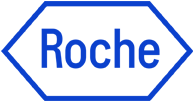Pipeline
Our pipeline of MGDs represents a new approach to selectively edit the human proteome and eliminate therapeutically relevant proteins.
*Expanded Access Policy
Expanded Access is the use of an investigational new drug to treat a patient outside of a clinical trial. Monte Rosa Therapeutics Inc. is committed to developing therapies using our proprietary protein degradation platform, and we are focused on conducting the clinical trials needed to obtain regulatory approvals. We believe participating in one of our clinical trials, where possible, is the best way for patients to access our investigational product candidates. Monte Rosa Therapeutics Inc. does not offer expanded access of its investigational drugs outside of clinical trials. At such time as Monte Rosa Therapeutics Inc. begins to make expanded access to any of our investigational drugs available, this website and policy will be updated to notify the public of the procedures for making expanded access requests and our criteria for evaluating such requests.
Applicability
This Expanded Access Policy applies generally to all investigational drugs manufactured or distributed by Monte Rosa Therapeutics, Inc. for use in serious diseases or conditions.
Questions
Additional questions may be directed to clinicaltrials@monterosatx.com. For more information about our ongoing trial, please visit ClinicalTrials.gov. Monte Rosa Therapeutics, Inc. typically responds to inquiries about our Expanded Access Policy within 7 working days.


